Kaska elders say 'souga senla' for meal delivery program
When a home support worker visited his Watson Lake house on a Thursday earlier this month, Hammond Dick stood to shake her hand.
"Souga senla," he said, heartily — thank you, in Kaska.
Margaret Charlie asked how he was doing as she dropped off a reusable grocery bag filled with cooked meals: salmon, chicken, beef stew and more.
Dick is one of about 50 people in Watson Lake who are getting these weekly visits.
It's part of a new program that uses the kitchen and resources of the Watson Lake Community Hospital to cook meals which are then frozen and delivered to elders and people with chronic health conditions.
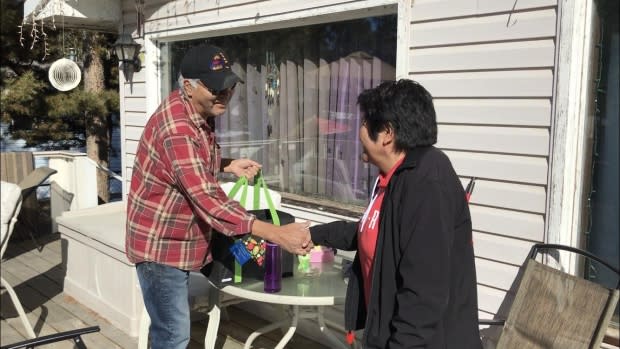
"It means a lot to me," said Dick, a member of the Ross River Dena Council. "I can heat up this food when I'm ready to eat, and it reduces my cost of living quite a bit."
Some can't afford food in Watson Lake
Watson Lake is about a five hour drive from Whitehorse and food prices there are slightly higher on average.
Margaret Charlie, an elder home care worker with the Liard First Nation, says the meal program helps those in need.
"Some of the elders can't afford the food in Watson Lake because it's too expensive and they live on pension, so they appreciate it," she said.
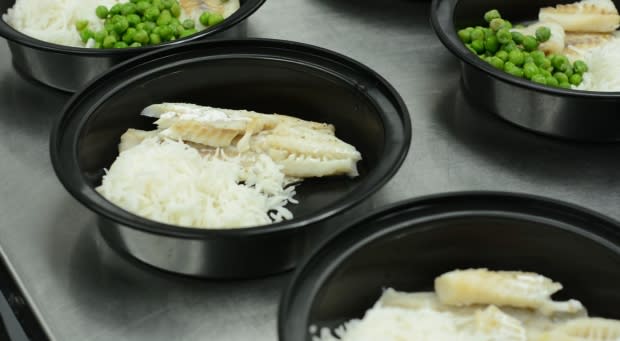
Venus Abou, also a home care worker with the Liard First Nation, hopes that heathy food will allow some people to recover more quickly from illness and stay living in their own homes for longer.
"It does feel good," she said of delivering meals. "I'm a very caring person, so I really like to see my elders happy."
One reminder of the poverty and lack of housing in Watson Lake is that some meals aren't delivered to homes. They are delivered to the local campground where at least three elders live at this time of year.
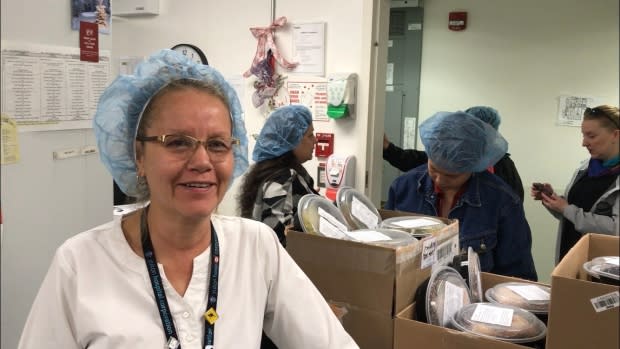
Hundreds of meals
The program is a cost-sharing agreement between the Liard First Nation and the Yukon Hospital Corporation.
It began when hospital staff in Watson Lake suggested they weren't being used to their full potential.
Carol Chiaisson, director of patient care and experience for the hospital, says the Watson Lake hospital only holds a few patients at a time.
"It would vary. Sometimes there were none, up to a maximum of five patients. And then maybe the odd staff member or physicians might purchase lunch. [Kitchen staff] were typically feeding less than 10 people a day," she said.
The staff now use the kitchen to make hundreds of meals, delivering a total of eight lunches and dinners a week to about 50 people enlisted through the Liard First Nation.
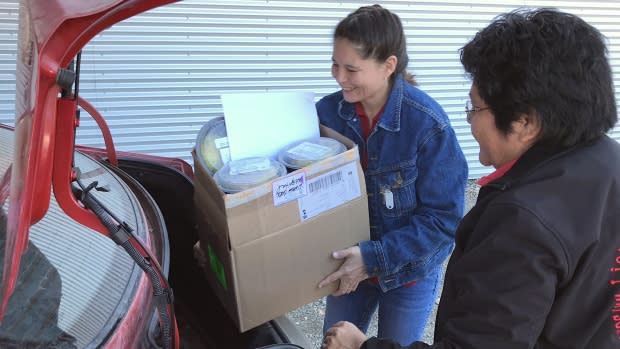
"We wanted to better utilize [the resources]. It's a trial period we're going through," Chiaisson said of the program.
Beverly Lister, who is Cree and from Saskatchewan, has been working for the Yukon Hospital Corporation as a hospital nutrition worker for six years.
She calls the meals program an efficient use of the resources but said it's already proving to be a lot of work. It's uncertain whether it will be sustainable in the long term.
"I think it's great, it's definitely a way to go in small communities. We have a big kitchen," she said.
"But it is a little bit hard on us because there is only one cook at a time making all these meals. You make roughly 600 meals per month, and we have a schedule to keep."
Fresh ingredients and bannock
One of the First Nation's contributions has been to purchase a blast chiller for the meals. The First Nation also buys the meals at cost from the hospital.
The First Nation's home support workers handle pickup, sorting and delivery as well as working with elders to take orders from a menu. Elders choose their meals two weeks in advance.
Gladys Meinema, who cooks at the Watson Lake Community Hospital, says the hospital kitchen staff mostly use fresh ingredients bought in Watson Lake.
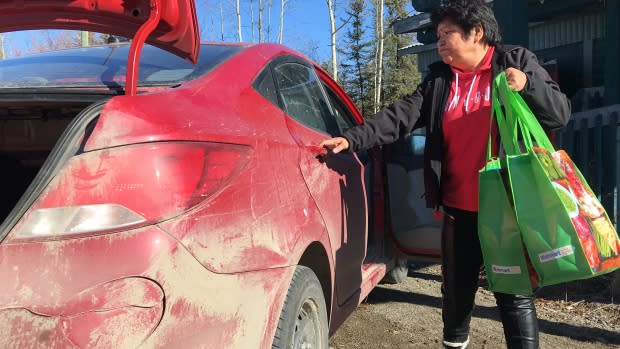
"We do have the opportunity to make all of our soups from scratch. I like to make things as homemade as possible. When I roast a turkey, I save the bones and boil the broth down for turkey noodle and turkey rice soup," she said.
The food is similar to what is cooked for hospital patients, in terms of being low in salt and fat.
They've also added some bannock to the menu.
'It means a lot to me right now'
One recipient of the meals is Lillian Edzerza, 90, a Liard First Nation elder who lives in a building for seniors in Watson Lake.
She said she is happy with the meals coming in.
"It means a lot to me right now because I couldn't do too much for myself," she said.
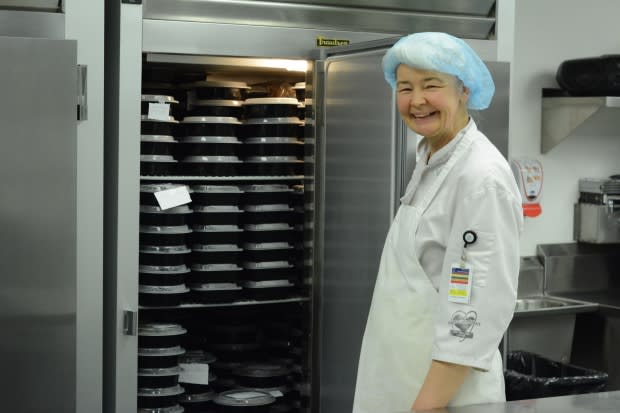
The Liard First Nation has recently revived and changed some community programs after making its way out of third-party management.
The First Nation has also been offering cooking workshops in the community, wherein participants take home healthy food hampers after class.

